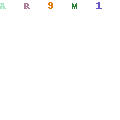While the military continued to carry out police duties in the cities, Parliament initiated discussions on a constitutional amendment to transfer public security control to civilian authorities. In January 1995, the new Criminal Police (Unidad de Investigación Criminal) began its activities – led by civilians. It replaced the secret police that had been disbanded the year before. This new corps initially consisted of 1,500 officers and was trained by Israeli police and by the North American FBI. During this period, 50 people were murdered daily in Honduras.
High-ranking government officials were arrested in 1995 for their involvement in the trade in passports. The Supreme Court removed former President Callejas’ immunity so that he could explain the falsification of documents and the acquisition of public funds. Even incumbent President Reina was caught up in his anti-corruption offensive when he was being investigated for his use of state funds for private purposes.

At the beginning of 1996, wages were raised by 25%, but at the same time prices of basic goods increased by 30%. Demonstrations with demands for higher wages were becoming more frequent, especially in the public sector. In contrast, the IMF enforced drastic cuts within the state. In a number of areas, the government is limiting the power of the military. Among other things. it was deprived of its control over the police and the size of the army reduced. An explosive attack on the presidential residence was attributed to dissatisfied elements within the military. In July, the commander of the army prevented the execution of a military uprising.
In October 1997, police arrested 400 people erecting a statue of the freedom hero Lempira in a public square in Tegucigalpa. In the same place, a statue of Columbus had been torn down and destroyed by the crowd.
On November 23, parliamentary and presidential elections were held. It was won by the ruling Liberal Party. Carlos Reina’s Liberal successor to the presidential post, Carlos Flores got 53% of the vote against 42% for the extremely right-wing candidate, Nora Castro of the National Party. The parliamentary elections confirmed the left’s exclusion from parliament. Flores declared that he would continue the opening of the country’s economy.
When the president took office in January 1998, he declared his willingness to form a national unity government and enter into a “non-assault pact” with the opposition within the military. Flores took over a country in crisis where 80% of the population lived in extreme poverty and where 228 landlords controlled over 75% of the country’s land. The international lending institutions pushed for a new structural adjustment program to be implemented as soon as possible.
In September 1998, Hurricane Mitch caused $ 5.36 billion damage dollars and cost about 24,000 people life in Central America – including 6,000 Hondurans. 1.3 million Hondurans lost their homes and 8,000 disappeared. A year later, flooding cost 35 lives and put 14,000 acres of cultivated land under water. The damage this time to 20 million. dollars. Authorities subsequently stated that if Honduras had truly received the help the developed countries had promised after Hurricane Mitch, the rivers could have been cleansed and the new disaster could have been avoided.
According to thesciencetutor, the signing of a border agreement with Colombia in November 1999 triggered a diplomatic crisis in relations with Nicaragua, and both countries began mobilizing troops at the border. As part of the agreement, Honduras recognized Colombia’s supremacy over an archipelago off the coast of Nicaragua, as the 15th latitude in turn marked the border between the two countries. Colombia’s supremacy over the islands of San Andrés and Providencia as well as the 15th latitude mark excludes Nicaragua from 130,000 km2 havterritorium. Honduras and Nicaragua Foreign Ministers signed an agreement to continue negotiations in the future, and in February 2000 established a demilitarized zone at the common border. But less than 1 month after signing, gunfire exchanged between the two countries in the Golfo de Fonseca on the Pacific Coast. Clashes continued into March.
In January 2002, Ricardo Maduro took over from the Partido Nacional presidential post after receiving 52.2% of the vote. As a result of the economic crisis in the country, the number of robberies had increased and abductions had become a common occurrence as a means of enrichment. During his election campaign, Maduro had pledged to put an end to the rising crime and, shortly after his takeover, established a corps of 10,000 soldiers to fight the crime.
